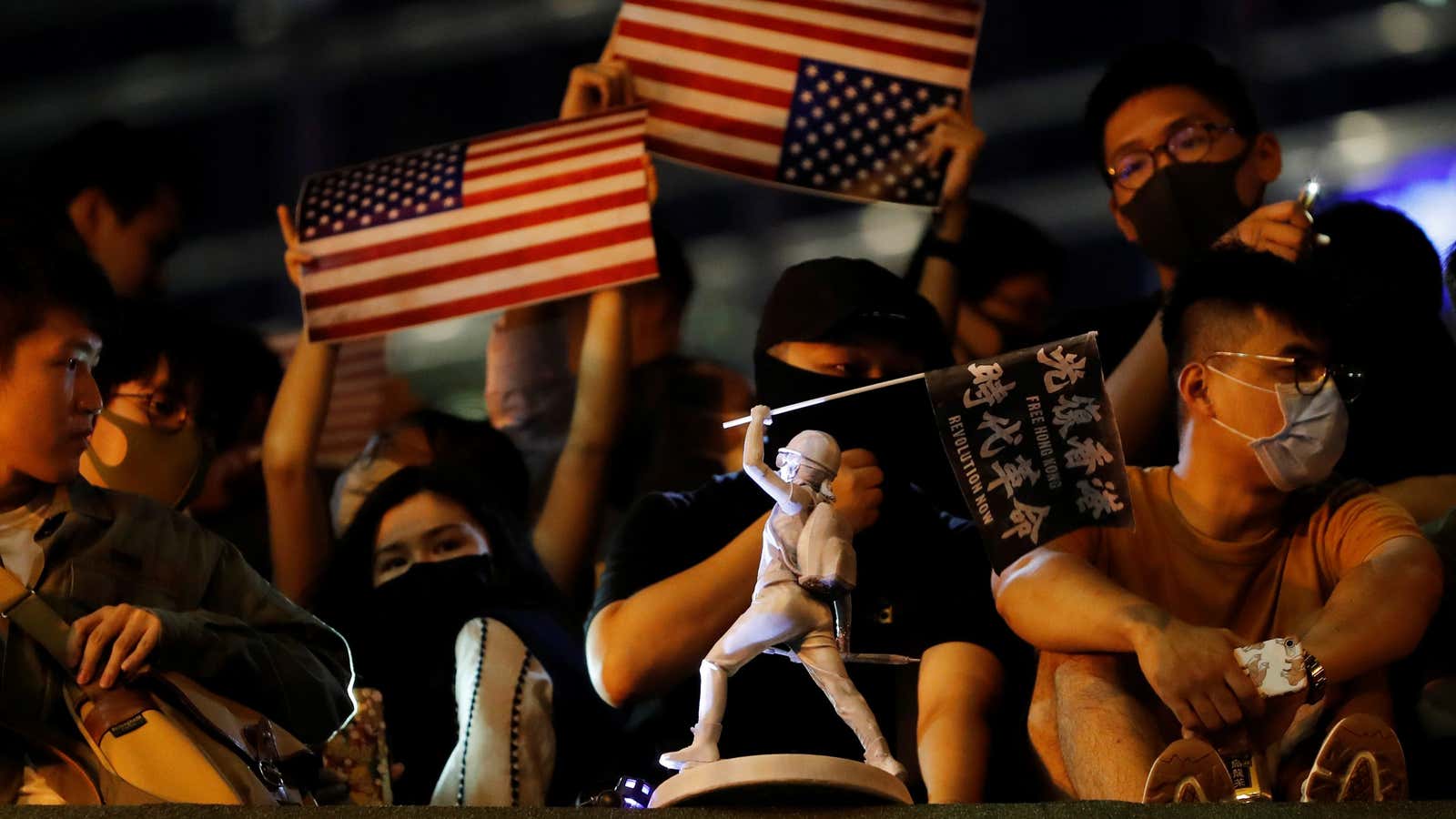There is a long and growing list of global companies, artists, and institutions that have “hurt the feelings of the Chinese people.” Last week it was video-game powerhouse Blizzard. Before that, the general manager for the NBA’s Houston Rockets. But it goes back much further.
This often leads to self-censorship about China, even outside the country.
This is how it usually works: A non-Chinese person says something that offends the nationalist ideology that is more or less mainstream in China. The Chinese government, social media, or both, freak out about it, and call for that entity to be “cancelled,” shamed, and cut off from China.
Afraid of losing access to the riches of the Chinese market, and unsure whether they did in fact say something hurtful, the offender then issues a heartfelt apology.
On its face, this looks a lot like “cancel culture” in the United States. Chick-fil-A is revealed to be deeply anti-LGBTQ, criticism of it goes viral, people boycott the company, there is a non-apology-apology.
But there’s a key difference: On the Chinese internet, only certain ideologies are allowed to go viral. Posts in favor of LGBTQ rights, democracy, Taiwan, the Dalai Lama, and so on are scrubbed. Add to that the fact that a bellicose brand of nationalism is in fact widespread in China, and you get a situation like the NBA’s, where an innocuous “freedom for Hong Kong” tweet caused a global news event.
So far, Westerners have largely dealt with all of this using a crude strategy: “apologize, play dumb, shut up.” LeBron James, normally known to be a supporter of political freedom, disappointed many of his American fans by saying that people in the NBA should have kept quiet about Hong Kong.
That is a shame. We live in a time when corporations and celebrities tell us that they care about more than money, that values are as important as the bottom line. If they truly “don’t understand the issues in China”—a common excuse—they need to start learning. And if they really care about values, there is none more fundamental to Americans than the one Hong Kong’s protesters are fighting for: universal suffrage.
This essay was originally published in the weekend edition of the Quartz Daily Brief newsletter. Sign up for it here.
